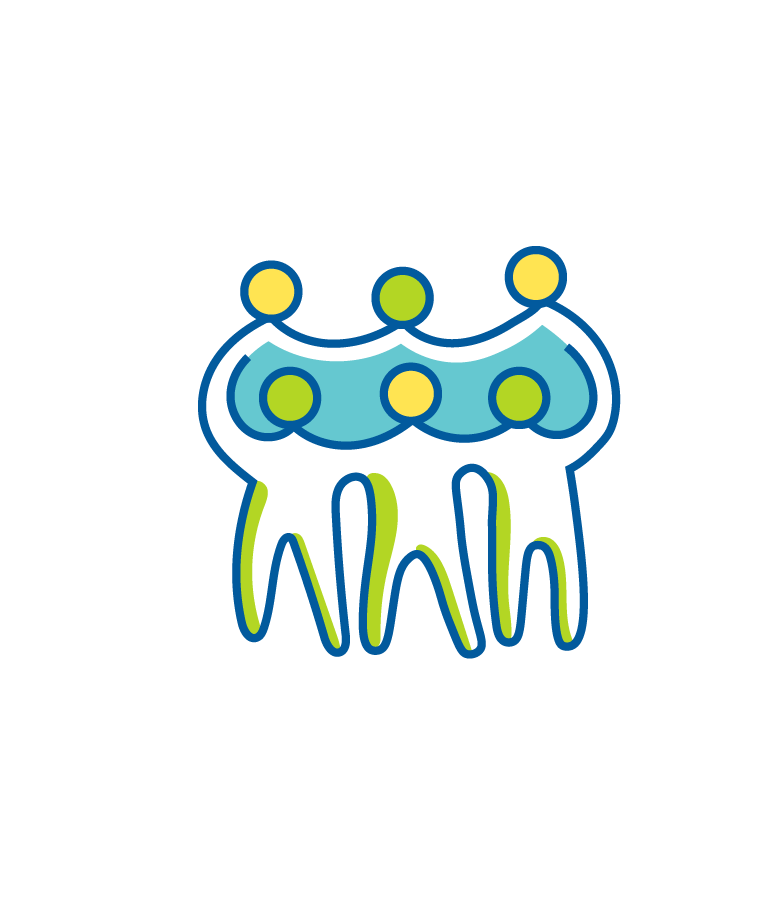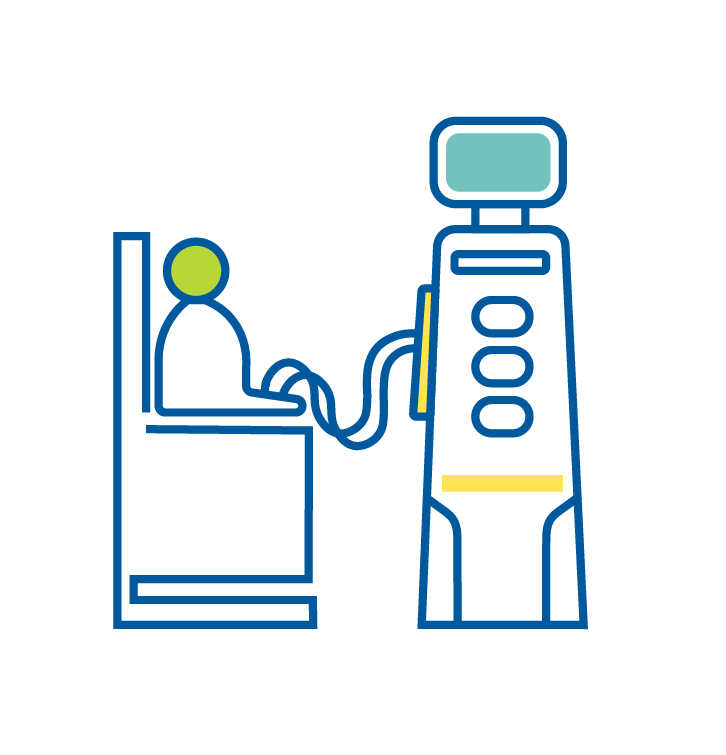Protein and Kidney Disease

What is protein?
Protein is one of the three types of nutrients that give us calories (energy). The other two are carbohydrates and fats. We need all three to survive. Protein is essential for building muscles and supporting our general health..

The average American eats more than the daily recommended amount of protein. On average, men consume 100 grams and women consume 70 grams daily.
Protein and kidney disease
How much protein do we need to eat to stay healthy? This answer depends on your stage of chronic kidney disease (CKD).
Learn about the different protein needs for each stage.
CKD stages 1 - 2
The daily recommended amount of protein is the same for people without kidney disease.
- The daily recommended amounts are:
For the average male*: 8 oz. (about 56 grams) of lean protein - For the average female*: 6 to 7 oz. (about 46 grams) of lean protein.
*Average male: 5’10” a healthy weight range is between 129 -174 pounds. A weight of 155 pounds (BMI 22.2) was used for all protein recommendations
*Average female: 5’4” a healthy weight range is between 108 – 145 pounds.
*The weight you use to calculate your protein needs may need to be adjusted if you are overweight or obese. Ask your dietitian or doctor for more guidance.
CKD stages 3, 4, and 5 (non-dialysis)
For later stage kidney disease, the amount of recommended protein decreases.
The daily recommended amount of protein for people with CKD stage 3-5 (non- dialysis) who do not have diabetes is 0.25 – 0.27 grams per pound of body weight. Here’s an example:
- 132 pound female
- 132 x 0.25 =33 grams
- 132 x 0.27=36 grams
This person should aim for a range of 33-36 grams of protein per day.
CKD stage 5 (dialysis)
Once you start dialysis, your protein needs increase. Dialysis, including hemodialysis and peritoneal dialysis, remove some of your body’s blood proteins. These proteins are important to help keep fluid in your veins and arteries. They transport important nutrients to the rest of your body and help repair the everyday damage naturally occurring in your body. Therefore, you need to eat more protein to make up for the amount you lose during dialysis.
The daily recommended amount of protein for people with CKD stage 5 (dialysis) is 0.45 – 0.55 grams per pound of body weight*. Here’s an example:
- 132 pound female
- 132 x 0.45 = 59 grams
- 132 x 0.55= 73 grams
This person should aim for a range of 59-73 grams of protein per day.
*The weight you use to calculate your protein needs may need to be adjusted if you are overweight or obese. Ask your dietitian or doctor for more guidance.
Protein in foods
Proteins give your body the fuel it needs to have energy. We get protein from animal and plant sources. When following a lower protein plan, it is important to eat additional healthy fat to replace the lost protein calories.
Examples of animal proteins include:

Whole eggs

Egg whites

Dairy products
such as yogurt, cheese, milk

Chicken

Beef

Ground Turkey
Examples of plant proteins sources include:

Legumes, such as beans and lentils*

Nuts and seeds*

Peanut butter

Soy Products, such as tofu, edamame, tempeh, soy milk

Whole grains*
Protein sources can also be high phosphorus sources. If you are prescribed phosphorus binders, be sure to take them with every meal. Lower phosphorus protein sources include egg whites, chickpeas, barley, and peanut butter.
Be aware:
Legumes, nuts and seeds, and grains may be high in potassium, which you may need to limit if you have CKD.
Find recipes that fit your protein needs
What is healthy for one person could be the opposite of what is healthy for another, especially with kidney disease. When your kidneys are not working as well as they should, they cannot filter your blood properly, allowing some vitamins and minerals to build up in your blood. Learn more about each nutrient and how it affects kidney disease.
Popular protein resources
Explore More:
Your support goes further with AKF
Your donation allows AKF to support people wherever they are in their fight against kidney disease – from prevention through transplant. For more than 50 years, we have fought on all fronts for millions of people impacted by kidney disease.
Donate today to support our work













